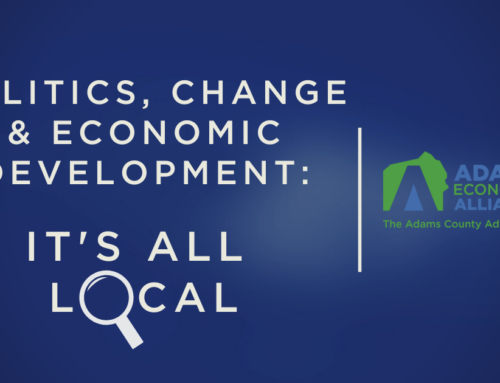There are unique twists and turns to tax codes every season, but that is true even more so this year. When we reached out to Andrew Donahue at Gettysburg’s Donahue Income Tax Services to see if he’d be willing to share advice for this column, he responded right away with a “Yes.” And that is what we’ve found, time and time again, as Adams County comes together as a community to share resources and information during this pandemic crisis.
How could COVID-19 relief funds affect taxes? We asked and Donahue graciously provided the following advice.
Paycheck Protection Program (PPP): Originally, as this federal program launched, there were concerns over its taxability. But after amendments to the CARES Act, “None of the PPP money is taxable to federal or state levels—it is to be treated as a federal grant, with no taxability,” says Donahue.
“And I definitely recommend any small business that didn’t receive PPP, to apply,” he says. “What I’ve been trying to express to clients is that we don’t know what kind of business environment we’ll be in, on the other side of this, and it’s always better to have the cash flow than to need it.”
Small Business Administration (SBA) Loans: “Be sure to check your emails if you received SBA loans,” Donahue advises, “Because that’s the main way they’re contacting people to let them know when paperwork is due on Economic Injury Disaster Loans (EIDL). They’re not taxable—rather, the interest paid is a tax deduction.”
Self-employed? “There’s a discount on the self-employed tax imposed on people who earned income through the time period between March 27 and December 31,” says Donahue. “If they don’t know about it, they could be paying additional tax.”
Pandemic Unemployment Assistance (PUA): This money is taxable on your federal return, Donahue advises.
Local and state grants: “These grants are the only ones to really be concerned about for tax issues,” Donahue explains. “They are subject to state and federal income tax and must be included in gross revenues. Unfortunately the IRS didn’t include those in the amendment to the CARES Act.”
Need additional advice? “Being mindful of the current year tax return, I would not want to sound self-serving, but small businesses should get professional tax help this year,” Donahue says.
Relationship and community impact: “I recognize the economic impact this disaster has had on our community,” Donahue says. “I work with tons of small businesses, and this has shuttered some businesses, but the ones we’ve been able to help and get access to funds has given them a lifeline to continue.”
“And I can’t stress enough—not to have just a bank account—but to have a relationship with your banker. I could not have been able to help businesses as much—with paperwork and necessary documents—if it wasn’t for several key local bankers who have really helped the community.”
Kaycee Kemper is Vice President of Adams Economic Alliance, which comprises three organizations: The Adams County Economic Development Corporation (ACEDC), the Adams County Industrial Development Authority (ACIDA) and the Adams County General Authority (ACGA). For more information, see adamsalliance.org, or follow us on Twitter (@AdamsAlliance), Facebook (Facebook.com/AdamsAlliance) and LinkedIn (Adams Economic Alliance).






